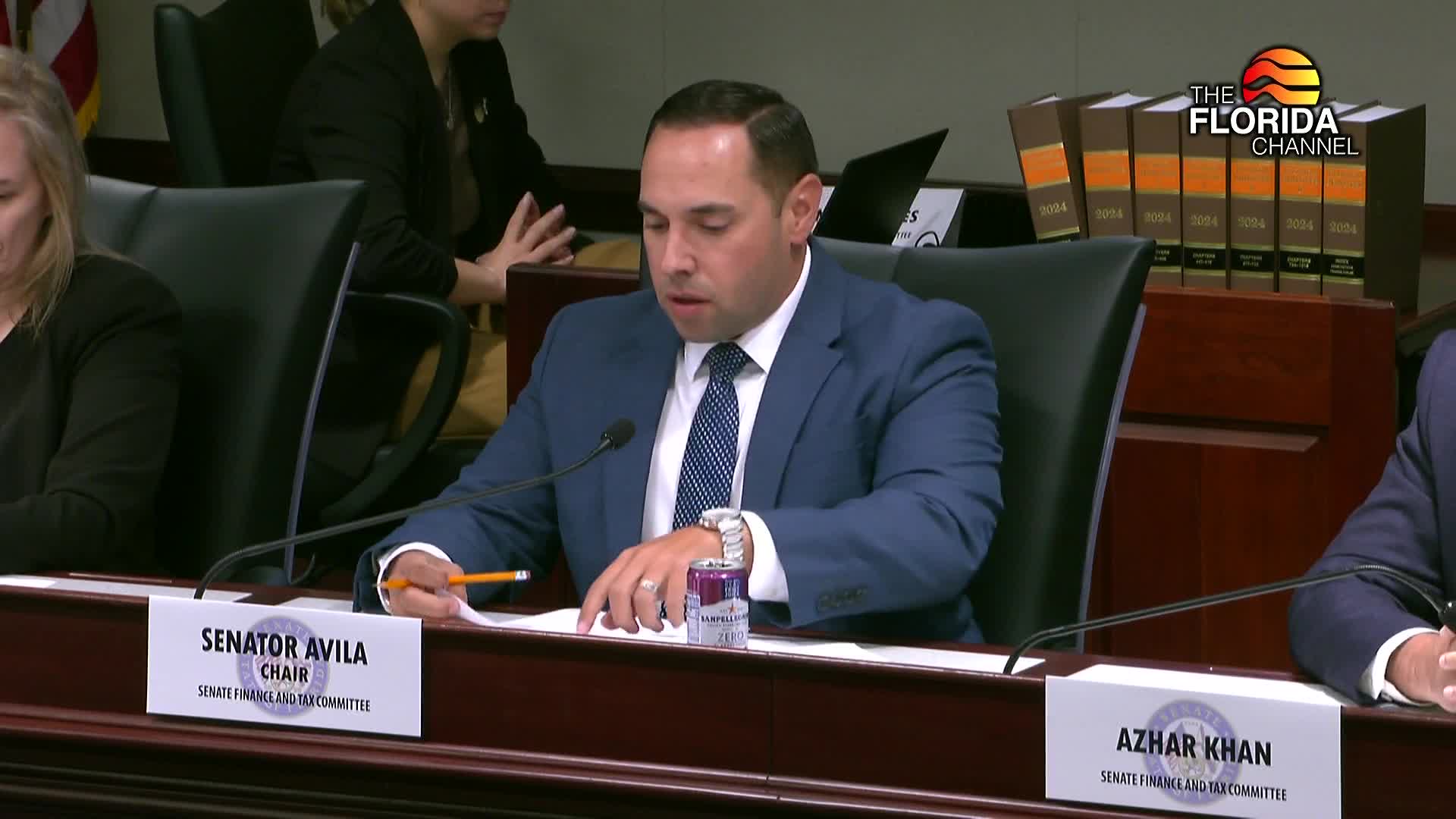Finance and Tax Committee hears statewide overview of property taxes as members weigh proposals to replace revenue
Get AI-powered insights, summaries, and transcripts
Subscribe
Summary
Committee staff delivered a data-driven overview of Florida’s property tax system, highlighting growth in just value, homestead protections and exemptions, and potential revenue gaps if property tax were eliminated. Senators asked staff to model replacement options and gather local government input.
Azar Khan, staff director for the Committee on Finance and Tax, gave senators an overview of Florida’s property tax system and recent trends, saying the presentation was “an overview on property taxes.”
Khan told the committee that statewide just value for real property rose from a little more than $2.5 trillion in 2018 to about $5 trillion in 2024, driven primarily by rising market values rather than parcel counts alone. He described the state’s four broad real-property categories — homestead, non‑homestead residential, non‑residential (commercial/institutional), and classified use (primarily agricultural) — and summarized key exemptions and assessment limits that affect taxable value.
The presentation noted two common homestead protections: a $25,000 exemption that reduces assessed value between $0 and $25,000, and a second homestead exemption that historically applied to value between $50,000 and $75,000; Khan said the latter will be adjusted annually by CPI following a recent constitutional amendment. He also summarized the Save Our Homes assessment limitation, which caps annual assessment increases for homesteads at either 3% or the rate of CPI, whichever is lower, and said that homestead assessment differentials can be transferred to a replacement homestead up to a constitutional cap of $500,000.
Khan outlined other data points discussed in the briefing: the number of parcels rose from about 10.3 million to nearly 10.9 million; classified‑use (agricultural) just value increased from roughly $64 billion to $97 billion between 2018 and 2024 while taxable value for that category remained a much smaller share; centrally assessed property (railroads) represented a little over $2 billion in just value; and tangible personal property (TPP) carries a $25,000 exemption and accounts for roughly one million accounts and on the order of a few hundred billion dollars in value (transcript phrasing unclear on exact TPP total).
After the briefing senators questioned staff on the fiscal implications of proposals that would partially or wholly eliminate property tax. Senator Jones asked about the impact to local governments; Mr. Sheer, a staff member, replied, “We know that the broad answer is we don't know,” and explained that the effect would vary by county and school district depending on local taxable value and budget structures. Sheer cited Department of Revenue aggregates showing non‑school levies and school levies in the tens of billions statewide and noted that levied taxes exceed collected taxes because of discounts and taxpayer nonpayment.
Senators pressed staff to produce follow‑up analyses. Several members requested modeling that would translate a hypothetical loss of property tax revenue into alternative tax rates — for example, what increase in the statewide sales tax would be required to replace a roughly $40–50 billion revenue gap cited by outside groups. Khan and other staff agreed to look into “straw‑man” scenarios and flagged that formal revenue forecasts (the state’s revenue estimating conference) were scheduled soon and could change the overall picture.
Committee leaders also asked staff to solicit input from local governments. Senator Bernard and others emphasized that property taxes are one part of county and municipal budgets and that a complete picture from cities and counties would be necessary to understand net impacts and tradeoffs.
No formal policy decisions were made. The meeting closed after Q&A and committee business; Senator Jones moved to adjourn and the motion was adopted without recorded objection.
Because the presentation and Q&A focused on data, exemptions and possible next steps rather than final actions, the committee did not adopt any bills at this meeting. Staff committed to further analysis on revenue‑replacement scenarios and to gathering local government feedback ahead of consideration of filed proposals.
